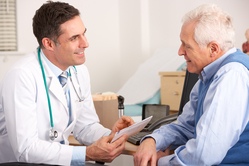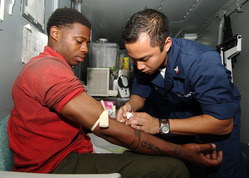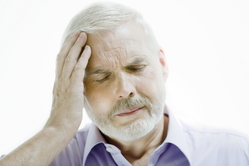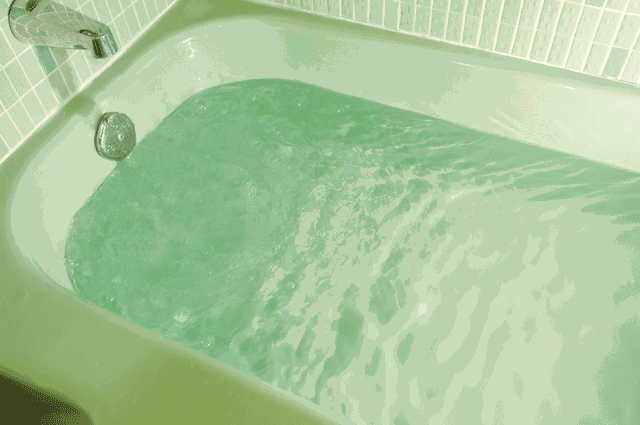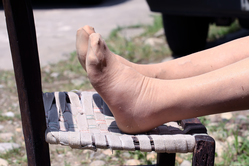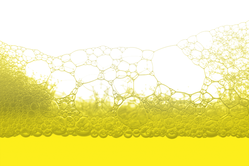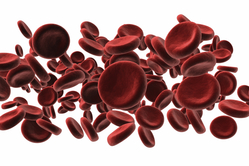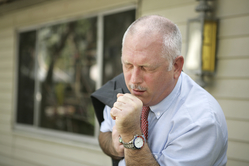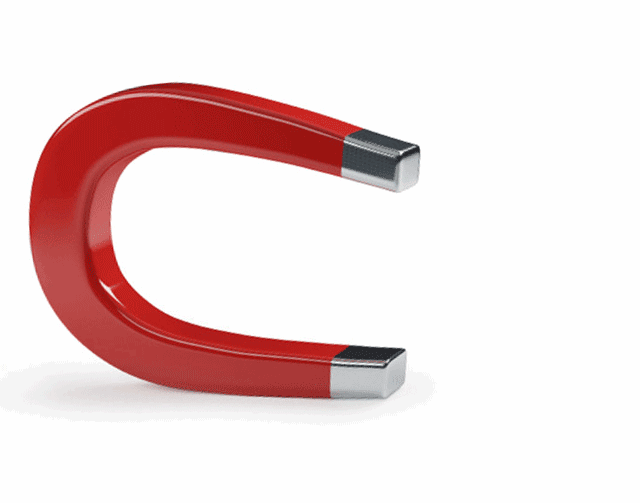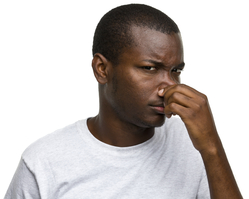Talk to Your Doctor About Symptoms
Even if a doctor has told you that chronic kidney disease is harming your kidneys, you may not feel the effects. Many people don’t notice any symptoms until their kidneys hardly work at all. Or, you may have symptoms and wonder if they might be caused by a kidney problem. The only way to know for sure is to see your doctor. Symptoms can be a clue, but the same symptoms can have many causes. Only a doctor can diagnose kidney disease, and this is done with blood and urine tests.
Not Sure if Your Kidneys are Healthy? Ask Your Doctor
If you are not sure about your kidney health, your VA health care team can help. They can do some simple lab tests to see how well your kidneys are working. They will want to check your blood pressure and test your urine for protein and other substances. They will take a small blood sample to measure kidney function by looking for a build-up of wastes. You may need an ultrasound or other tests as well. Visit the Laboratory for more information.
Tell Your Care Team if You Have Any of These Symptoms
Some people say they felt “fine” right up until their kidneys stopped working. Maybe they didn’t have any symptoms. Or, maybe they didn’t know what to look for. Your care team will be able to help you feel better if you tell them about any symptoms you have. Here is a list of common symptoms of severe chronic kidney disease:
- I’m so tired!
- I feel cold all the time
- My feet are so swollen that my shoes don’t fit
- My fingers are so swollen that my rings don’t fit
- My face looks puffy
- It’s hard to breathe
- I itch all over
- The thought or smell of meat makes me sick to my stomach
- I feel sick to my stomach a lot
- I feel faint or dizzy, or pass out
- Food doesn’t taste right—it all tastes like metal
- I can’t think clearly
- My urine is foamy or bubbly, a dark color like cola, or I feel pressure when I have to go
- People tell me my breath smells like ammonia
Download a CKD Symptom Diary and write down any symptoms you notice. Ask your provider about any of your symptoms: either call his/her office, use secure messaging (available through MyHealtheVet), or bring the list to your next VA clinic appointment. If you have a symptom now, it doesn’t mean that you always will. Many of these symptoms can be treated and you can feel better. In most cases, CKD does NOT cause kidney pain.
Water and Salt Build Up in Your Body
Kidneys that don’t work well don’t remove all of the excess water and salt from the body. Think of your body as a bathtub. When your kidneys work well, you fill up the “tub” by drinking—and then the water and salt go down the drain as urine. But when your kidneys don’t work well, water and salt stay in the “tub” and only drain out slowly. If your kidneys fail, the water and salt don’t drain out at all, and you need treatment to live.
Swelling in the Hands, Feet, or Face
When the kidneys don’t work well, excess water and salt can build up in the hands, feet, or face (often under the eyes). This problem is most common in kidney diseases that cause protein to leak into the urine (called proteinuria).
Cutting back on salt in your diet will help because salt holds water in your body.
Medicines may help, too:
- Diuretics (water pills) prescribed by a doctor can help your body get rid of some excess water and salt (as long as your kidneys are still working).
- Blood pressure pills called ACE inhibitors or ARBs may help slow the types of kidney problems that cause swelling.
To learn more about medicines, visit the Pharmacy.
Changes in Urine
Some kidney problems can cause changes in the color or amount of your urine. Diseases that damage the filters in the kidneys can let protein from the blood leak out into the urine.
If this happens, you might notice that your urine looks bubbly, foamy, or dark. You might also make more or less urine than usual, or have blood in your urine.
Anemia: Too Few Red Blood Cells
Healthy kidneys tell your bone marrow to make red blood cells. How? They make a chemical message. The kidneys send a hormone called erythropoietin, or EPO, to the bone marrow where red blood cells are made.
Kidneys that don’t work right make less EPO. This can mean that you don’t have enough red blood cells—a problem called anemia. Slight anemia is okay when you have a kidney problem. You might not even know you have it. But severe anemia causes many of the symptoms of chronic kidney disease, like:
- Fatigue
- Feeling cold all the time
- Fuzzy thinking
The good news is anemia can be treated so you have more energy.
Hormones are chemical signals made in one part of the body that control another part of the body. Kidneys make three hormones:
- Erythropoietin (EPO) – helps you make red blood cells.
- Calcitriol (active vitamin D) – helps you absorb calcium from food.
- Renin – helps control blood pressure.
Working? Don’t Quit Because You’re Tired!
Anemia from kidney disease can make people so tired that they feel like they have to quit their jobs. But, if you work, think twice before you quit. Taking disability may not be your best choice. Why?
- Disability does not pay as much as your job—you will get only about 1⁄3 of your income.
- If you quit, you may find it hard to find a new job.
- Work can give you a sense of pride and help you feel valued.
Anemia can be treated and you can have more energy to do things you want to do.
The treatment for anemia can take three forms:
- Iron, which your body needs as a building block to make red blood cells.
- Manmade erythropoietin, or EPO.
- Blood transfusion, as a last resort.
If you feel too tired to work, talk to your care team. Ask to be tested for anemia. The test is a blood count for hemoglobin—your level of red blood cells. To learn more, visit the Laboratory.
Itching Can Be Treated—Ask How
Late stage chronic kidney disease can make you itch! It may be that your skin is dry. Try a lotion. In many cases, the cause is a build-up of phosphorus in your blood. As kidney function drops, the kidneys remove less phosphorus. You take in phosphorus each time you eat. It’s one of the most common minerals in our food supply. Nearly all foods have at least some. Foods with the most phosphorus include:
- Meats
- Dairy
- Nuts
- Beans
- Whole grains
- Chocolate
- Cola drinks
Trying to limit foods with phosphorus can be a challenge, but there are ways to do it. To learn more, visit the Nutrition Room.
Itching Treatment: Phosphate Binders
Your doctor may prescribe medicines for you called phosphate binders. Like a magnet, binders attract and hold phosphorus before it can get into your bloodstream. The phosphorus passes through your gut and is removed in your stool. Most binders are prescribed by your doctor. Taking phosphate binders and watching what you eat go hand in hand to help you feel your best.
You take phosphate binders:
- WITH food—while you are eating, so they are in your gut with your food
- With ALL food—meals and snacks
- ONLY with food—if you forget, wait until your next meal or snack
To learn more, visit the Pharmacy.
Can’t Eat Protein? Talk to Your Care Team
If you find that you can’t face eating protein foods like meat—or can’t eat much at all—see your health care team right away. Nausea and loss of appetite can occur with kidney problems, or can be a symptom of another illness.
Kidney disease can cause many kinds of symptoms—or no symptoms at all:
- If you worry that you might have a kidney problem, please set up a time to see your VA health care team.
- If you know you have a kidney problem and you now feel nausea or don’t want to eat, ask your care team to check your level of kidney function. Keeping track of your symptoms can help you get the care you need to feel your best.
Symptoms of CKD
- A high level of this chemical in your blood could mean a kidney problem:
Not scored Creatinine is a waste product that is made each time you move your muscles. Healthy kidneys remove it from the blood. High levels may mean a kidney problem.
- Swelling due to kidney problems most often occurs in the:
Not scored While the symptoms of CKD can be very subtle, most people do notice when their shoes or rings don’t fit. Swelling is something to ask your VA care team about.
- Urine that has protein in it may look:
Not scored Healthy kidneys don’t let much protein leak out into the urine. Foamy or bubbly urine is something to ask your VA care team about.
- Anemia is:
Not scored Healthy kidneys make a hormone called EPO (erythropoietin) that tells the bone marrow to make red blood cells. Anemia, a shortage of red blood cells, is common when the kidneys don’t work as well as they should.
- Itching in people with kidney problems is often due to:
Not scored Healthy kidneys remove excess phosphorus from your blood. If your kidneys don’t work well, it can build up and cause itching.













